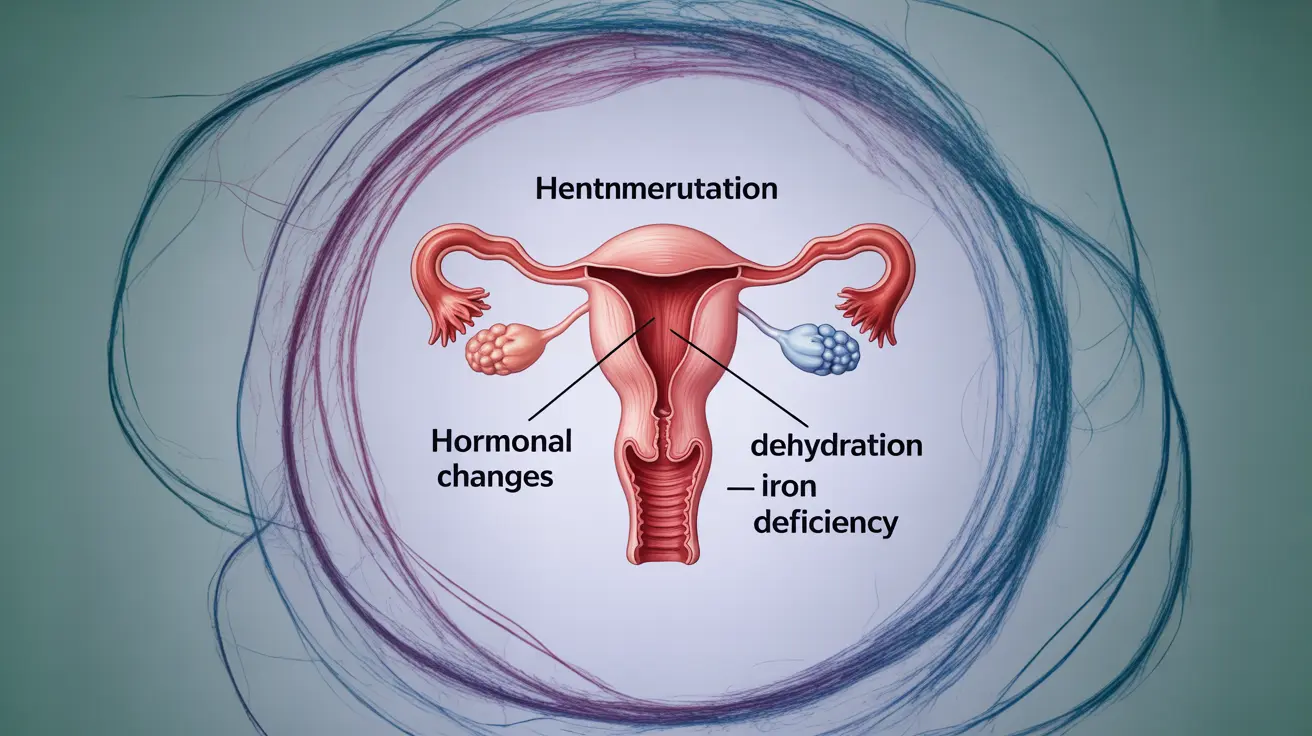Feeling faint or lightheaded during menstruation is a common experience that can be both concerning and disruptive to daily life. Understanding why this happens and knowing how to manage these symptoms effectively can help you navigate your monthly cycle with greater confidence and comfort.
This comprehensive guide explores the causes of period-related faintness and provides practical solutions to help you maintain your well-being during menstruation. From dietary adjustments to lifestyle modifications, you'll learn evidence-based strategies to prevent and manage these symptoms effectively.
Understanding Period-Related Faintness
During menstruation, several physiological changes occur that can contribute to feelings of faintness or dizziness. Hormonal fluctuations, blood loss, and changes in blood pressure can all play a role in causing these uncomfortable symptoms.
Common Triggers of Period-Related Faintness
Several factors can increase your likelihood of experiencing faintness during menstruation:
- Heavy menstrual bleeding leading to iron deficiency
- Dehydration
- Low blood sugar levels
- Hormonal fluctuations
- Stress and anxiety
- Poor sleep quality
Natural Ways to Prevent Feeling Faint
Taking proactive steps to prevent faintness during your period can significantly improve your comfort and well-being. Here are several effective strategies:
Dietary Adjustments
Maintaining proper nutrition is crucial for preventing faintness during menstruation. Focus on:
- Iron-rich foods (lean meats, leafy greens, legumes)
- Complex carbohydrates for stable blood sugar
- Foods high in B-vitamins
- Hydrating foods and beverages
- Magnesium-rich foods like nuts and seeds
Lifestyle Modifications
Simple changes to your daily routine can make a significant difference:
- Stay well-hydrated throughout the day
- Maintain regular meal times
- Get adequate rest
- Practice gentle exercise
- Avoid prolonged standing
- Take breaks when feeling overwhelmed
Emergency Management Strategies
If you start feeling faint during your period, try these immediate interventions:
- Sit or lie down immediately
- Place your head between your knees if sitting
- Take slow, deep breaths
- Drink water or electrolyte-rich beverages
- Eat a small snack containing protein and complex carbohydrates
When to Seek Medical Attention
While occasional light-headedness during menstruation might be normal, certain symptoms warrant medical evaluation:
- Frequent fainting episodes
- Severe dizziness that interferes with daily activities
- Heavy menstrual bleeding
- Persistent fatigue
- Chest pain or irregular heartbeat
- Severe headaches
Frequently Asked Questions
What causes feeling faint or light-headed during your period?
Feeling faint during your period can be caused by hormonal changes, blood loss leading to iron deficiency, dehydration, or drops in blood pressure. These physiological changes during menstruation can affect your body's normal functioning and lead to feelings of light-headedness.
How can I stop feeling faint on my period naturally?
Natural remedies include staying well-hydrated, eating regular meals rich in iron and nutrients, getting adequate rest, and avoiding prolonged standing. Regular light exercise and stress management techniques can also help prevent faintness during menstruation.
What foods help prevent dizziness and faintness during menstruation?
Focus on iron-rich foods (lean meats, spinach, beans), complex carbohydrates (whole grains, sweet potatoes), and foods high in B-vitamins and magnesium. Stay hydrated with water and electrolyte-rich beverages, and avoid skipping meals.
When should I see a doctor for fainting or dizziness related to my period?
Consult a healthcare provider if you experience frequent fainting episodes, severe dizziness that affects daily activities, heavy menstrual bleeding, persistent fatigue, or if your symptoms are accompanied by chest pain or irregular heartbeat.
What lifestyle changes can reduce feeling faint during menstruation?
Key lifestyle changes include maintaining regular sleep patterns, practicing stress management techniques, engaging in moderate exercise, staying hydrated, eating balanced meals, and taking breaks when needed. Avoiding alcohol and limiting caffeine intake can also help prevent faintness.




